|
Democrats on the U.S. House Committee on Oversight and Reform have wrapped up a historic investigation into Big Oil’s obstruction and obfuscation of climate and the clean energy transition and are handing the torch off for others to continue to the probe and to press for accountability. The investigation has uncovered extensive industry records such as internal emails that are likely to be highly relevant to the batch of climate lawsuits currently pending against major oil and gas companies such as Shell, Chevron, BP, and ExxonMobil.
On December 9, 2022 the Committee released hundreds of pages of documents – part of the internal industry record gathered through subpoenas - and a 31-page memo summarizing some of the key findings. This latest release follows the Committee’s revelation in September of documents and initial findings that Committee leaders say show the industry is misleading the public. Overall the documents offer evidence and indications that the oil and gas industry is intent on continuing and expanding its extractive, climate-damaging business despite claims of becoming cleaner and pursuing credible climate action. Such claims, industry critics contend, amount to greenwashing, which some of the lawsuits point to in alleging that the industry’s deceptive conduct is ongoing. “Even though Big Oil CEOs admitted to my Committee that their products are causing a climate emergency, today’s documents reveal that the industry has no real plans to clean up its act and is barreling ahead with plans to pump more dirty fuels for decades to come,” Committee Chairwoman Carolyn Maloney said in a statement announcing the latest release of industry documents. The nearly two-year investigation honed in on Big Oil’s role in disseminating climate disinformation and delaying or blocking meaningful climate action, and the gap between the industry’s public rhetoric and its internal discussion on climate and the energy business. While previous investigations by journalists, academics and others have revealed the industry’s historical conduct of undermining climate science and misleading the public, including through funding climate denial messaging, the House Oversight probe illuminates the industry’s ongoing efforts to deceive and engage in disinformation, particularly through hollow ‘net zero’ pledges and the promotion of technologies and alternative fuels like carbon capture and hydrogen or ‘renewable’ natural gas that preserve the role of fossil fuels under the guise of climate solutions. “Internal emails and messaging guidance show that Big Oil’s climate pledges rely on unproven technology, accounting gimmicks and misleading language to hide the reality,” Rep. Ro Khanna, Chair of the Oversight Committee’s Subcommittee on the Environment, said in a September statement. He is calling for further action to hold the industry accountable and told NBC News that the documents obtained by the Committee “will be handed over to those with more resources who can act on the information.” There is speculation that Khanna could be referring to the Department of Justice. DOJ could open its own investigation into Big Oil, and the Department has investigatory tools that even Congress lacks. Given that Big Oil and its trade associations refused to fully cooperate with the Committee and its subpoenas, and heavily redacted many of the documents that were handed over, DOJ could play a key role in breaking through the industry’s obstruction. “It’s time for the Department of Justice to engage and initiate actions to hold these bad faith polluters accountable for the catastrophic damage they have caused and the massive fraud they’ve perpetrated on the American people,” said Richard Wiles, president of the Center for Climate Integrity, an advocacy group focused on climate accountability. In the meantime, litigation is already underway seeking to hold fossil fuel entities accountable for climate-related harms and alleged fraudulent behavior, with around two dozen states and municipalities currently suing the industry in courts across the country. Lawyers for the government plaintiffs will surely be pouring over the Committee’s documents and potentially using them to make their case. “This new batch of compromising evidence will help communities seeking justice through the courts and ensure that fossil fuel companies pay for the outsize role they have played in climate change and the suffering of communities,” Delta Merner, a lead scientist at the Science Hub for Climate Litigation at the Union of Concerned Scientists, said in a statement.
0 Comments
Swedish Youth Lodge Class-Action, Rights-Based Climate Lawsuit Against Their National Government12/10/2022 The latest youth climate lawsuit challenging the government’s response to the climate crisis has been filed in Sweden. On Friday, November 25 an association called Aurora announced the lawsuit against the Swedish state. The youth-led association, representing over 600 young people born between 1996 and 2015, filed its case as a class-action on behalf of all Swedish youth. Prominent Swedish climate activist Greta Thunberg is among the plaintiffs.
“Today on Black Friday is the perfect day to sue the state over its insufficient climate policies. So that’s what we did. See you in court!” Thunberg wrote on Twitter. The lawsuit follows several letters that the youth campaigners sent to government officials, requesting the government investigate and calculate its “fair share” of reducing GHG emissions in line with limiting warming to 1.5°C and then take all necessary measures to achieve its equitable share of emissions reductions. The campaigners contend that Sweden is failing to adequately address emissions and prevent dangerous warming, endangering the fundamental human rights of young people as climate impacts worsen over time, during the expected lifetime of today’s youth. The youth plaintiffs base their legal claims on alleged violations under the European Convention on Human Rights, including rights to life, private and family life, and non-discrimination (Articles 2, 8, and 14, respectively), and the right to property (Article 1). According to a summary of the case, plaintiffs “ask the court to order the state to implement its fair share of GHG emissions reductions to keep global warming below 1.5°C, by adopting sufficient and adequate procedural and substantive measures to ensure that emissions are continuously reduced and that GHG are absorbed through natural carbon sinks, in order to limit the risk of negative impacts of climate change on them.” According to a 23-year-old spokesperson for the youth plaintiffs, the lawsuit is part of a larger movement of turning to the courts in the absence of urgent policy responses to the climate emergency. “People in power don’t seem to realize that large-scale and immediate action is required to prevent it from worsening further,” Ida Edling told Courthouse News. “The global movement of climate litigation has shown that lack of sufficient climate action is irresponsible and unimaginably dangerous and illegal.” Finland is facing a legal challenge from environmental groups alleging the government is in breach of its obligations under a new climate law. According to Greenpeace, it is the first climate litigation to arise in the Nordic country.
Greenpeace Norden and the Finnish Association for Nature Conservation filed an administrative appeal in late November arguing that the state had failed to take or consider additional measures to ensure it would meet its emissions reduction targets, which would be necessary given the collapse of Finland’s carbon sinks. Heavy logging and lack of forest protections has turned the land sector from a carbon sink or absorber of CO2 to a source of carbon emissions, threatening the government’s ambition to achieve carbon neutrality by 2035. That goal is enshrined in Finland’s new climate law, the Climate Change Act. Under this law, Finland must adopt plans or policies to reach its climate commitments and do annual assessments to report on progress The law sets emissions reduction targets for 2030, 2040, and 2050 and includes a goal of strengthening carbon sinks. As explained in a Greenpeace press release: “The collapse of Finland’s carbon sinks in 2021 has created a situation where the government’s climate policy plans are insufficient for meeting the Climate Act’s targets.” Finland’s annual report for 2022, the lawsuit argues, failed to take into account additional measures needed to address the loss of carbon sinks. This violates the state’s obligations under the Climate Change Act, plaintiffs say. “Finland has science-based climate goals and a climate law that is meant to ensure that the goals are reached. Finns can be proud of that. But now the government has neglected its legal duty to assess the adequacy of action and, as needed, to decide on additional measures, sufficient to meet the goals,” said Greenpeace Norden’s Senior Climate Policy Advisor Kaisa Kosonen. This is why it’s our duty as NGOs to seek for a court ruling on this.” The lawsuit was filed with Finland’s Supreme Administrative Court. Story originally published in DeSmog
Nearly 25 years ago, oil major Shell predicted in an internal 1998 report that a class-action lawsuit would be brought against fossil fuel companies following “a series of violent storms.” That prediction is finally coming true: A group of Puerto Rican communities, which were ravaged by Hurricanes Irma and Maria in 2017, are suing Shell and other fossil fuel producers in a first-of-its-kind, class action climate liability lawsuit. The groundbreaking case — filed November 22 in the U.S. District Court for the District of Puerto Rico — is the first climate-related class action lawsuit in the United States filed against the fossil fuel industry to target the industry with federal charges of racketeering. It alleges that the fossil fuel defendants engaged in a coordinated, multi-front effort to promote climate denial and defraud consumers by concealing the climate consequences of fossil fuel products in order to inflate profits. Sixteen Puerto Rican municipalities are suing as a class or representatives on behalf of the more than 60 municipalities on the island that all experienced devastating losses from the 2017 hurricanes. The case demands that fossil fuel companies pay for damages associated with catastrophic storms, beginning with the 2017 hurricanes, and their lingering impacts, arguing that these disasters are worsened by climate change. The more than 200-page complaint alleges that fossil fuel companies’ products and deceptive conduct greatly accelerated global warming, including warming oceans. Climate models predict that as oceans warm, hurricanes will become more intense, leading to more turbocharged storms like Maria and Irma. The 2017 Atlantic hurricane season, in which both Irma and Maria hit, saw six major hurricanes and resulted in nearly $300 billion of damage. In Puerto Rico, Maria alone caused almost 3,000 fatalities and more than $120 billion in damages, destroying the island’s power grid and devastating other critical infrastructure like roads and health care facilities. This September, almost five years to the day after Maria hit, Hurricane Fiona slammed Puerto Rico, again impacting infrastructure and compounding damages from the 2017 storms. With mounting climate-related disaster costs, the question becomes, how can Puerto Rico pay for this? Through this new litigation, the island’s municipalities are trying to compel some of the world’s largest oil, gas, and coal companies to pay for the consequences of the climate crisis their products have fueled. As explained in a press release announcing the lawsuit, the companies’ “failure to disclose the truth about their products had disastrous effects for Puerto Rico, which was defenseless against the historically strong hurricanes that hit the island in 2017.” The Global Climate Risk Index report from 2020 noted that between 1999 and 2018, Puerto Rico was the country most affected by climate change, due in part to “exceptionally devastating” storms. Companies named as defendants in the lawsuit include BP, Chevron, ConocoPhillips, ExxonMobil, Shell, Occidental Petroleum, Motiva Enterprises, BHP, Arch Resources, Peabody Energy, and Rio Tinto. All are among the 90 corporate entities, or “carbon majors,” that research indicates are responsible for nearly two-thirds of carbon emissions since the Industrial Revolution; the companies listed above together account for about 40 percent of industrial emissions from 1965 to 2017, according to the complaint. The complaint, supported by excerpts from industry communications, delves into how oil companies knew over half a century ago about the potential catastrophic impacts of a warming planet, and that this warming resulted from the use of their products. It also details how they deliberately acted to conceal what they knew about climate impacts and to publicly disseminate disinformation, fund climate denial, and obstruct policy responses and attempts to shift to alternative energy sources. “Instead of acting to limit the potential greenhouse gas emissions, they mobilized with the coal and fossil fuel dependent industries to manufacture and spread propaganda and deception about climate science, contrary to their own internal scientific conclusions, in order to ensure unabated emissions and the sale of their products to consumers worldwide and in Puerto Rico,” the complaint contends. As part of their disinformation and deception campaigns, fossil fuel companies funded various “free market” think tanks and front groups to amplify their misleading messaging. The lawsuit calls out a handful of these organizations, including the Competitive Enterprise Institute (CEI), which received more than $2 million from Exxon, the Heritage Foundation, the Heartland Institute, Frontiers of Freedom, and Committee for a Constructive Tomorrow (CFACT), which took funding from Exxon, Chevron, and Peabody. Another group that the complaint alleges was central to the deception campaign was the Global Climate Coalition, an industry lobby organization formed in 1989 by companies and trade associations in carbon-intensive sectors such as fossil fuels, chemicals, automobiles, and electric utilities, to undermine climate science and thwart climate policies. The complaint details the GCC’s obstructionist role, which included the formation of a communications task force that in 1998 created the infamous “victory will be achieved when” internal memo that outlined the coalition’s objective to manipulate the public’s understanding of climate science. Such conduct demonstrates an orchestrated attempt to obfuscate and obstruct, and this misleading behavior is ongoing, according to legal counsel for the municipalities. “This is a laid out, multifaceted plan that was decades in the making that is still being perpetuated to this day,” Melissa Sims, an attorney with the law firm Milberg Coleman Bryson Phillips Grossman PLLC, which is representing the Puerto Rican communities, told DeSmog. A “New Front in the Climate Liability War” The lawsuit brings more than a dozen legal claims under federal and Puerto Rican law, such as consumer fraud, violation of Puerto Rican consumer protection rules, and violation of federal antitrust law. Notably, it also alleges violations under the Racketeer Influenced and Corrupt Organizations (RICO) Act, a federal statute designed to fight organized crime or other corrupt conduct. RICO has been successfully used to hold the tobacco industry accountable for lying about the health hazards of their products, and has been applied in litigation against opioid and auto manufactures. Until now, it had yet to be asserted in a climate liability lawsuit, although several Democratic senators have previously called for a federal probe of Big Oil that could result in potential racketeering litigation. Patrick Parenteau, emeritus professor of law and senior fellow for climate policy in the Environmental Law Center at Vermont Law and Graduate School, said he had been expecting a RICO claim to arise in climate liability litigation. “I think this opens a whole new front in the climate liability war,” he told DeSmog via email. “It sends yet another signal to the financial markets that fossil is a bad investment.” Parenteau acknowledged that a racketeering claim adds extra challenges, since plaintiffs will need to prove collusion between the defendants. “But it ups the ante in terms of potential remedies and damages,” he explained. Additionally, Parenteau explained that since the lawsuit was filed in federal court, it can avoid the venue disputes that have delayed the other climate liability lawsuits targeting fossil fuel companies. Representatives for several of the oil company defendants said in emailed statements that this litigation is a “baseless distraction” and that climate solutions must be reached through “smart policy from governments” rather than courts. “Addressing a challenge as big as climate change requires a truly collaborative, society-wide approach. We do not believe the courtroom is the right venue to address climate change,” Shell spokesperson Anna Arata said in a statement. A lawyer for Chevron also described the climate crisis as a societal challenge resulting from “worldwide conduct” of consumers, including Puerto Ricans. “Residents and public officials in Puerto Rico rely every day on oil and gas to live and work on the island, power their homes, become a tourist destination, and grow their economy. This lawsuit is one in a series of suits that attempt to punish a select group of energy companies for a challenge that is the result of worldwide conduct stretching back to the beginning of the Industrial Revolution,” said Theodore J. Boutrous, Jr., of Gibson, Dunn and Crutcher, counsel for Chevron Corporation. A 2021 peer-reviewed study by Harvard researchers Naomi Oreskes and Geoffrey Supran, however, suggests that these kinds of statements are part of a misleading narrative framing that downplays the gravity of the climate crisis, normalizes dependency on oil and gas, and focuses blame on individual consumers. According to the study, which examined communications from ExxonMobil, “These patterns mimic the tobacco industry’s documented strategy of shifting responsibility away from corporations—which knowingly sold a deadly product while denying its harms—and onto consumers.” ExxonMobil did not respond to a request for comment on the new lawsuit from Puerto Rico. Boutrous added: “Chevron believes the claims alleged are legally and factually meritless, and will demonstrate that in court.” But if the federal racketeering litigation that determined that tobacco companies had committed fraud on a massive scale is any indication, the fossil fuel companies could be in real legal peril with this new RICO litigation. “Tobacco opened the door to using RICO, and let’s face it—RICO was enacted to fight organized crime,” said Sharon Eubanks, an attorney who previously led the U.S. Justice Department’s successful RICO litigation against Big Tobacco in United States v. Philip Morris USA, et al. “That seems to be what we have here with Big Oil as well.” A group of scientific, medical and policy experts – including renowned climate scientist Dr. James Hansen – is suing the U.S. Environmental Protection Agency in an attempt to compel the agency to address greenhouse gas (GHG) emissions under a federal statute designed to control hazardous chemical substances.
The climate experts filed their lawsuit on November 12, 2022 in federal court in Eugene, Oregon. The case follows the EPA’s rejection of a petition submitted by the experts explaining the grounds for initiating a rulemaking under the Toxic Substances Control Act to phase out anthropogenic GHGs that are driving the rapidly escalating climate crisis. Plaintiffs demand that EPA use its authority under the TSCA to develop regulations to limit and eventually eliminate planet-warming emissions, the majority of which stem from producing and consuming fossil fuels. According to the complaint: “Without regulation under TSCA, the U.S. Government will not eliminate the unreasonable risk to health and the environment posed by greenhouse gas emissions.” Previously the EPA has relied on the Clean Air Act to devise regulations addressing climate pollution, such as setting controls for vehicle tailpipe emissions. The Toxic Substances Control Act has not been utilized for climate purposes, although EPA did impose a general ban on chlorofluorocarbons (CFCs) in aerosols – chemicals that deplete the ozone layer and act as GHGs - in 1978. The TSCA requires EPA take action to control any chemical substance or mixture determined to present a risk of injuring or causing widespread harm to health or the environment. Plaintiffs argue that GHGs (beyond just CFCs) qualify under the statute as dangerous substances that warrant agency action to control. “TSCA is a chemical safety act. Right now, greenhouse gases are the most unsafe chemicals on the planet. TSCA is designed to control chemical risk other authorities can’t,” Donn Viviani, plaintiff and former EPA scientist, said in a statement. “I worked at EPA for over 30 years, and it is hard for me to understand why the Agency would need a Petition to regulate these unsafe chemicals,” he continued. “Indeed, it is virtually unbelievable to me that they denied the Petition and require a lawsuit to take action to contend seriously with the worst risk that mankind has ever faced.” The climate experts submitted their petition to EPA on June 16, 2022. Several months later in September, EPA denied the petition, claiming the request was not specific enough given the enormous scope of the climate crisis. EPA also said the government is taking steps to address climate change. Efforts already underway and future measures, the agency argued, would be sufficient to meet the U.S.’s climate targets. But Dan Galpern, the attorney representing the plaintiffs and executive director of the organization Climate Protection Restoration Initiative, said current climate actions and spending, such as those included in recent legislation (the Infrastructure Investment and Jobs Act and the Inflation Reduction Act), “remain hopelessly inadequate.” “The Agency’s reasonable use of TSCA to restrict GHG pollution really would shape an enduring legacy for Biden,” said Dr. Hansen. “The future of young people is at stake, and it is well past time we got serious.” |
Archives
July 2024
Categories |
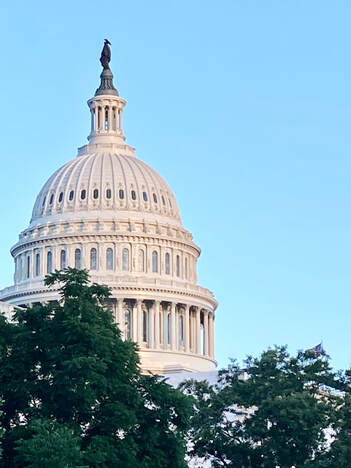
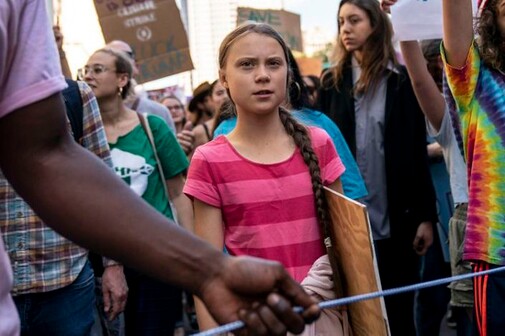
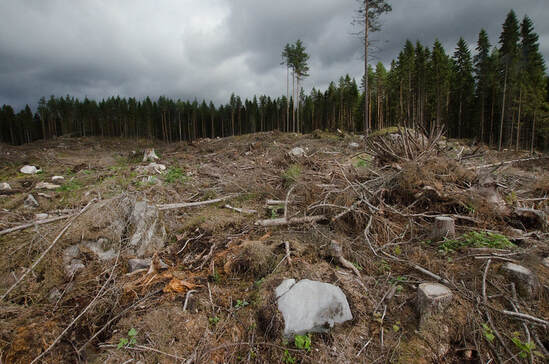
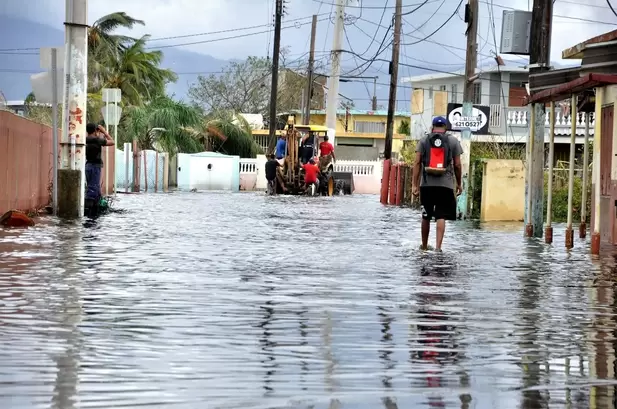
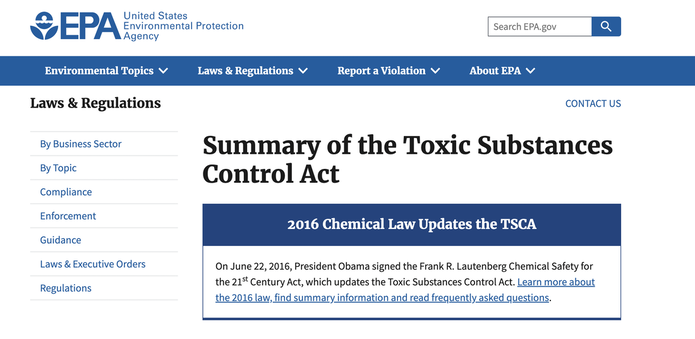
 RSS Feed
RSS Feed